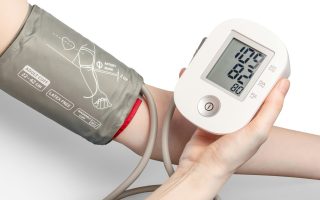
Imagine carrying a device inside your chest that keeps you alive, yet could be accessed by hackers. Pacemakers and other connected medical devices are designed to monitor, regulate, and protect your health. But as these devices become more reliant on wireless communication, they also inherit the risks of cybersecurity flaws. The idea of someone tampering with a pacemaker may sound like science fiction, but experts warn it’s a real possibility. But don’t worry. Here’s what you need to know about this and what you can do to stay safe.
Why Hackers Target Medical Devices
Hackers are drawn to connected medical devices because they represent a unique blend of personal data and life-critical functionality. Unlike a stolen credit card, a compromised pacemaker could directly endanger a patient’s safety. Cybercriminals may exploit vulnerabilities in device firmware or wireless communication channels. Even if the intent isn’t malicious, flaws in software updates can create openings for exploitation. The stakes are higher than in typical cyberattacks, making medical devices an attractive target for those seeking power or disruption.
Real-World Incidents That Raised Alarms
Concerns about pacemaker hacking aren’t just hypothetical—they’ve already prompted recalls and advisories. In 2017, the FDA issued warnings about vulnerabilities in certain pacemaker models, leading to firmware updates for thousands of patients.
Security researchers have demonstrated how signals could be intercepted or manipulated to drain batteries or alter pacing. These incidents highlight how quickly a technical flaw can escalate into a health crisis. Each case serves as a reminder that cybersecurity isn’t just about protecting data—it’s about safeguarding lives.
The Role of the Internet of Medical Things (IoMT)
The rise of the Internet of Medical Things (IoMT) has revolutionized healthcare. Devices like insulin pumps, defibrillators, and pacemakers now connect to networks for real-time monitoring. This connectivity allows doctors to adjust treatment remotely and patients to live more freely. Yet every connection point is also a potential entryway for hackers. Balancing innovation with security is the ongoing challenge of IoMT, and pacemakers are at the center of this debate.
How Manufacturers and Regulators Are Responding
Manufacturers and regulators are increasingly aware of the dangers posed by connected medical devices. The FDA now requires stricter cybersecurity testing before approving new devices.
Companies are investing in encryption, authentication protocols, and secure update mechanisms. Regulators also encourage transparency, urging firms to disclose vulnerabilities quickly. While progress is being made, experts caution that vigilance must remain constant as technology evolves.
What Patients Can Do to Stay Safe
Patients aren’t powerless in the face of these risks. Here are five steps you can take to keep yourself safe.
- Ask your doctor whether your device has received recent firmware updates.
- Avoid exposing your device to unsecured networks or unauthorized apps.
- Keep track of advisories from the FDA or device manufacturers.
- Consider discussing cybersecurity with your healthcare provider as part of routine checkups.
- Remember that awareness is your strongest defense—knowing the risks helps you make smarter choices.
The thought of a pacemaker being hacked is unsettling, but it doesn’t mean patients should live in fear. Instead, it’s a call to action for healthcare providers, regulators, and patients to work together. Connected medical devices are here to stay, and their benefits far outweigh the risks when managed responsibly. By staying informed, asking the right questions, and demanding accountability, patients can transform anxiety into empowerment. The digital heartbeat may be vulnerable, but with awareness, it can remain strong and secure.
Do you think the benefits of connected medical devices outweigh the cybersecurity risks? Share your perspective in the comments!
You May Also Like…
- 10 Underrated Signs Your Heart Health Is in Imminent Danger
- 8 Foods Seniors Should Drop ASAP to Protect Heart Health
- Uncover These 2 Hidden Settings on Your Phone Before Hackers Exploit Them
- Digital License Plates Hacked: How Cybercriminals Can Shift Tolls and Tickets to You
- 13 Passwords You Should Never Use Because Every Hacker Knows Them Already

Teri Monroe started her career in communications working for local government and nonprofits. Today, she is a freelance finance and lifestyle writer and small business owner. In her spare time, she loves golfing with her husband, taking her dog Milo on long walks, and playing pickleball with friends.






Comments